news
Why we beheaded businessman, dismembered his body — Bello Mohammed
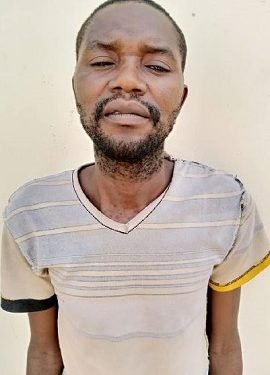
 A businessman and owner of a sachet water factory abducted from his home in Lafia, Nasarawa State has been killed by his abductors. Mr. Osondu Nwachukwu was said to have been stabbed to death by his abductors following the inability of his wife to raise the N5 million demanded as ransom.
A businessman and owner of a sachet water factory abducted from his home in Lafia, Nasarawa State has been killed by his abductors. Mr. Osondu Nwachukwu was said to have been stabbed to death by his abductors following the inability of his wife to raise the N5 million demanded as ransom.
A source who spoke with our correspondent, however, said disclosed that the wife was able to borrowed the some demanded by the kidnappers, but by the time she could get across to them, they had killed him and packed his dismembered body in a sack.
But when his killers were about to dispose his corpse some Fulani men who were returning from the mosque were said to have seen them pushing something in a truck. The Fulani men asked them what they were carrying, but before they could raise the alarm, the suspects ran away.
The Fulani men were said to have reported the matter to the police, following which the Force Intelligence Response Team (IRT) waded into the matter and arrested one Bello Mohammed, a native of Agyeregu Tasha in Lafia Local Government Area, Nasarawa State, on March 11.
Mohammed has since confessed to the crime, saying he was part of a notorious kidnapping and cattle rustling gang and identifying other members of the gang as Maikano, Dogo, Hassan and Jubril.
He told the police that it was an Igbo man in Lafia that brought the idea that they should kidnap the late Nwachukwu, an Igbo trader who until his death resided at Tudun Kauri, Makurdi Road Lafia, on September 30, 2019.
He said the gang decided to kill him because the family was not willing to pay ransom on time, after which they dumped his body in a bush at Bukan Koto along Makurdi Maraba-Ankunza Road, Lafia.
Speaking amid tears, Nwachukwu’s widow said: “We are blessed with six children. My husband owns a pure water factory and I normally joined him to run the business.
“I was at home on Friday, 30th of November, 2019 when some kidnappers stormed our house and abducted my husband.
“Later in the night, I received a call that I should bring N40 million if I wanted to see my husband alive.
“I pleaded with them to have mercy as it was a Friday and banks had closed.
“They asked me how much I had and I told them N40,000. They asked me to bring the money and I did that night.
“We were waiting to hear from my husband when I received a call from them that I should not bother as my husband was dead.
“I was told that the person that arranged his kidnap is from the East but I was not suspecting anyone at all.
“God will punish the person behind my husband’s kidnap and death.”
In his confession, Mohammed, 37, said: “I am from Nasarawa State. I have two wives and eight children and I am a cattle farmer.
“Things are hard for me as a farmer with eight children. It was my brother in-law, Dogo, who encouraged me to join them. He was the one that took me for the first job. He heard that things were hard for us and decided to show me the way.
“On the kidnapping of the Igbo man, it was another Igbo man that brought the job, He told us that the man owned a pure water business and was very stingy. He assured us that the man would pay at least N10 million because he was so rich.
“He gave us all the details about his movement and that the best place to pick him up was his house. We went with three motor bikes at about 8.30 pm and hanged around his compound.
“Meanwhile one of us waited for him at the factory area and followed him home. He was the one who alerted us when they were on the way to the house.
“As soon as he drove into his compound around 9 pm, we followed him and over powered him. We searched his house for valuables and dragged him along.
“When we got to a spot, we stopped and trekked for hours into Bukan Koto forest in Lafia.
Inside the forest, there are many Fulani farmers living with their wives and children. There, Dogo has a small hut where we used to keep our victims.
“We called his (Nwachukwu’s) wife to bring a ransom of N5 million and she said it was weekend.
“While we were at the hideout, the Igbo man who gave us the job called and we told him the situation of things. He said that the wife was lying and not serious about saving the life of her husband.
“Unfortunately, the man overheard our conversation and was able to identify the person that gave us the job. The man told us to kill him after collecting the money.
“We were ready to spare him but his wife was not making any serious effort. So Dogo got angry and said that he was no longer interested in the job. The man begged him but Dogo was too angry, and before we could hold him, he used his machete to cut off the man’s head.
“Since he was already dead, Dogo cut his body into pieces and packed them in a sack. I and two others were given the body to go and dispose at the nearest river. If we tried to dig the ground and bury him, the people might notice.
“We were conveying his dismembered body a wheel barrow about 7 pm on a Sunday when we were stopped by some Fulani men who were coming back from the mosque. We all left the corpse and ran away. I guess they were the ones who reported the matter to the police.”
Mohammed said the highest amount he ever made from an operation was N1.3 million, which he said he got from cattle rustling.
“We stole about 1,400 cattle and sold them,” he said.
“The only way to stop kidnapping is by arresting the kingpins and making them to pay the price as the law dictates, because they are recruiting boys regularly to replace the ones that were killed or arrested.
“I take tramadol and marijuana every day, and these drugs are expensive. We now have 25ml of tramadol, which is stronger. Everyone takes it and we give it to the person that we kidnap so that they will have strength to trek for hours into the bush.
“Usually, after every successful kidnap operation, we would set money apart with which Dogo would buy plenty drugs that would last us at least two weeks before we did another job.”
news
Impeachment Saga : Rivers Chief Judge Acknowledges Assembly’s Submissions Against Fubara
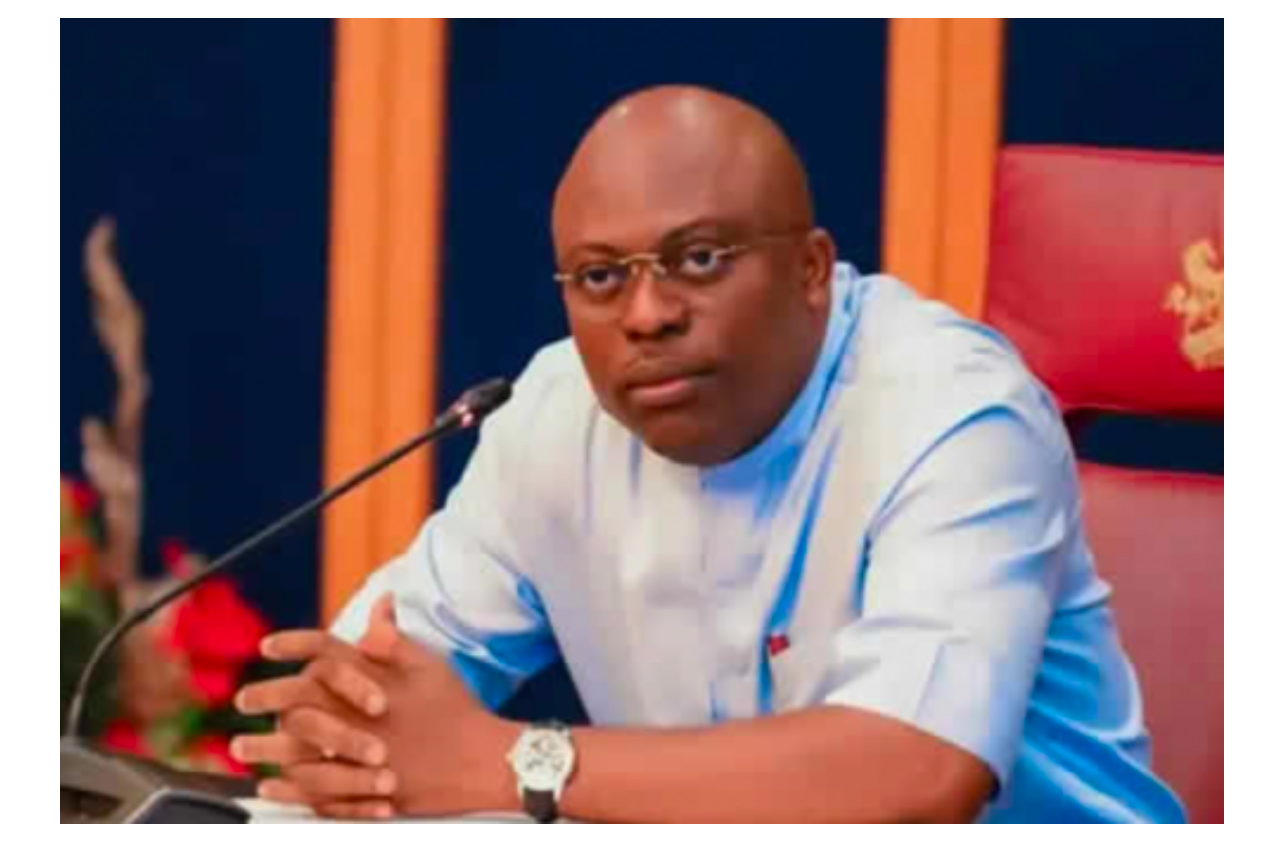
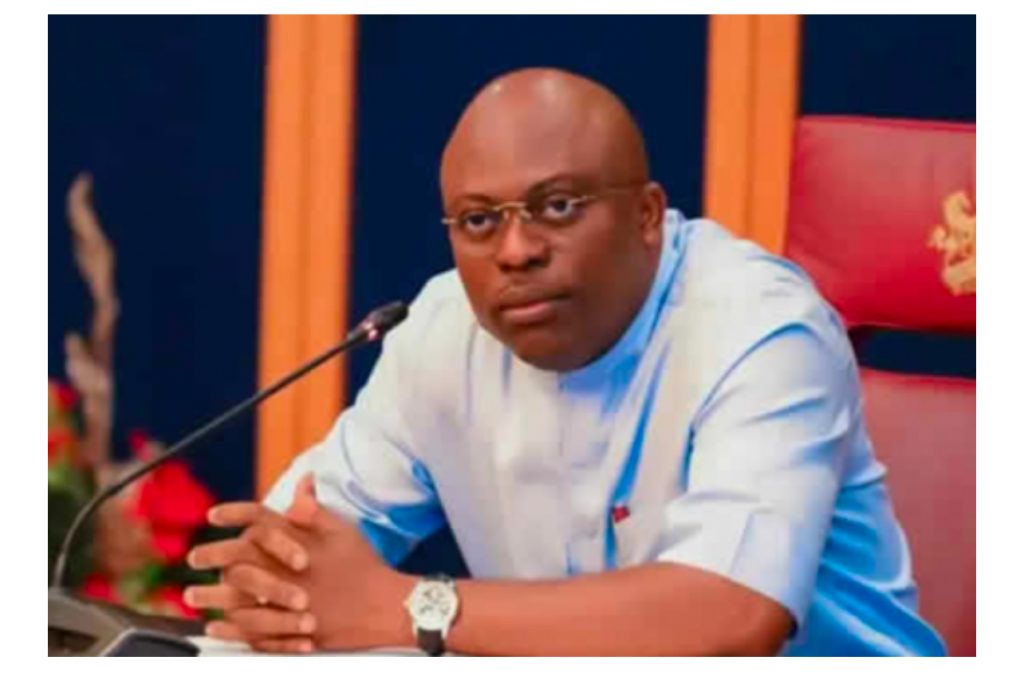
….Gov throws jibe, describes impeachment notice as ‘love letter’
Vows to avoid actions capable of breaching peace
The office of the Rivers State Chief Judge, Justice Simeon Amadi, has received the letter from the State House of Assembly requesting him to constitute a seven-man committee to probe the allegations of gross misconduct leveled against the state Governor, Sir Siminalayi Fubara and his Deputy, Prof. Ngozi Odu.
The House of Assembly Committee Chairman on Petitions, Information and Complaints, Dr Enemi George, confirmed that the Chief Judge had acknowledged receipt of all the documents.
Also received by the CJ’s office were other documents detailing the allegations of gross misconduct against the governor and the deputy governor, copies of the Rivers State Impeachment Panel (Conduct of Investigations) Procedure 2025 and photocopies of The Nation, The Guardian and The Sun, among others.
George said: “It is important to inform the good people of Rivers State that Mr. Speaker has already complied with the Constitution and letters sent by him to the Chief Judge have been received and acknowledged.
“All relevant documents including the Notices of Allegations of Gross Misconduct were attached”.
He added: “Every step going forward, what can happen or what cannot happen is clearly stated in Section 188 of the Constitution.
“The good people of Rivers State should remain calm and should not listen to those who want to truncate our democracy.”
He commended and thanked the good people of Rivers State for their support and prayers for the 10th Assembly in particular and Rivers people at large.
The Rivers State High Court sitting in Oyigbo Local Government Area has however issued an interim injunction restraining the CJ from receiving, forwarding, considering or acting on any request, resolution, articles of impeachment or any form of communication from Speaker Martin Amaewhule and other members of the State House of Assembly for the purpose of constituting a panel to investigate the alleged misconduct against the governor and his deputy.
They just landed me a ‘love letter’, says Fubara
Governor Fubara, in a veiled reference to the impeachment notice, called it a love letter.
“This 2026 that I thought would have been the finest, they just landed me a love letter,” he said while speaking as special guest during the finals of the 2026 Port Harcourt Polo Tournament in Port Harcourt, the Rivers State capital.
He added:”That notwithstanding, we must move on and carry on the responsibilities as a government. We will continue to support everyone who means well for Rivers State.”
He vowed that he would not support, directly or indirectly, any action capable of undermining peace and safety in the state.
He insisted that the protection of lives and property remained the primary responsibility of his administration.
He emphasised that he remained the governor of the state and would continue to deliver on the promises made to the people.
Fubara expressed satisfaction that the 2026 Port Harcourt Polo Tournament was held for one week without any incident.
He described the peaceful conduct of the event as a clear indication that Rivers is safe for residents, visitors and investors.
A supporter of the governor, Amb.Chijioke Ihunwo, asked the assembly members to perform their functions independently.
He pleaded with President Tinubu to intervene on the matter, insisting that the governor had done nothing to warrant his removal.
He said: “This assembly must remain independent to allow peace to prevail in the state.
“Governor Fubara has done nothing to warrant his removal. President Tinubu should intervene in this matter as the leader of the party.”
The high powered committee set up by the Pan Niger Delta Forum (PANDEF) to reconcile the feuding sides in the Rivers imbroglio is said to be working round the clock to stop the planned impeachment.
The committee members have already met with Federal Capital Territory (FCT) Minister Nyesom Wike in Abuja and separately with Fubara and some other stakeholders.
news
Alleged Arms Discovery: Malami Faces DSS Probe as EFCC Denies Victimisation
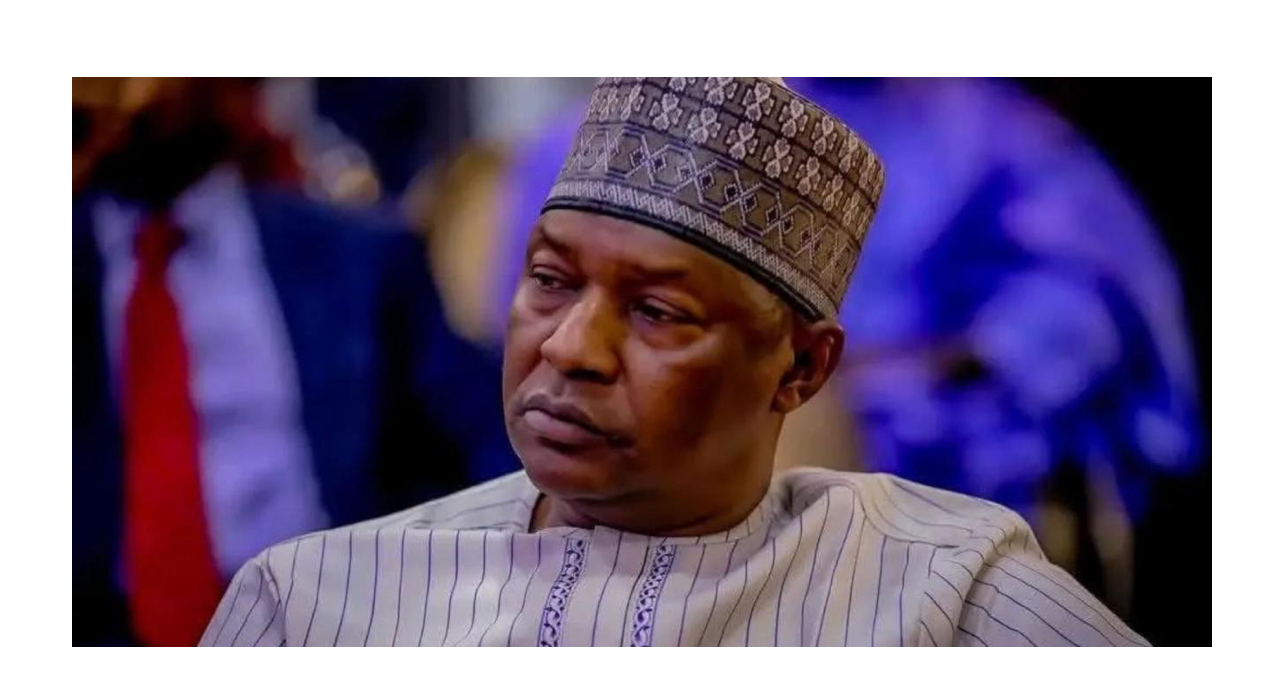
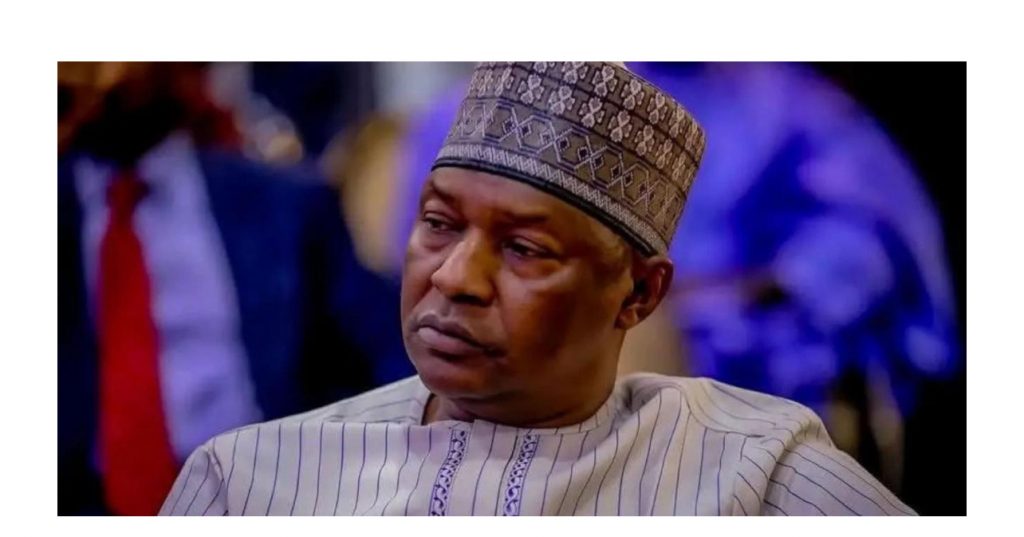
Economic and Financial Crimes Commission (EFCC) chairman Ola Olukoyede has faulted the persecution claim by the immediate-past Attorney-General of the Federation and Minister of Justice, Mallam Abubakar Malami (SAN).
He described it as unfortunate that some Nigerians were buying into the narrative when Malami’s probe started before his appointment.
Malami is standing trial alongside some family members on 16 counts of money laundering involving about N8.7 billion.
Speaking on a national television yesterday, Olukoyede dismissed Malami’s claim of vendetta against him, saying the commission has not wavered in investigating and prosecuting those suspected to have been involved in corruption cases.
“There’s nothing like that. The particular case predated my appointment. And, I didn’t give a nod to initiate proceedings until I found that we have a water-tight investigation,” he said.
The EFCC boss denied being indicted by Justice Ayo Salami’s panel.
Olukoyede said: “I challenge those making such claims of indictment against me by Justice Ayo Salami Panel to publish the report.
“Let me tell Nigerians that the commission’s investigation panel cleared me of any wrongdoing. The presidency at the time also cleared me. Also, the law enforcement agencies handed me a clean bill.
“I can say clearly that there’s no report anywhere that I’ve been involved in any fraudulent dealings, whether as the commission’s chief of staff, secretary, and now, the chairman of the commission.”
Noting that the commission, under his watch, made notable achievements last year, he said: “Our big win in 2025 was our ability to review and revive old cases that Nigerians thought were dead.
“Some of the cases affect past governors and ministers, and many such cases are in courts.
“We were able to recover assets. Nigerians are aware of the Lokogoma assets. One major recovery was a university.”
The EFCC recovered Nok University in Kachia, Kaduna, after a court ordered its final forfeiture because it was built with stolen public funds by a former civil servant.
It was converted to the Federal University of Applied Sciences,
Immediate-Past Attorney-General of the Federation and Minister of Justice, Mallam Abubakar Malami (SAN), is facing a fresh investigation over the arms and ammunition found in his house.
Newsthumb learnt that the arms were uncovered at his Kebbi country home by the operatives of the Economic and Financial Crimes Commission (EFCC) during a search.
The anti-graft agency, it was further learnt, handed them over to the Department of State Service (DSS) for a comprehensive probe because it is not within its remit to do so.
The number of arms and ammunition could not be immediately ascertained, but it was gathered that they are high in number to attract a full DSS investigation.
Malami, who was granted bail last week along with his sons – Abdulaziz, Abiru-Rahman, and others – is still in the Kuje correctional centre, having been unable to perfect his bail conditions.
But, sources said he might be taking things slowly to stall the DSS investigation into the weapons found in his house.
“The former minister is being separately investigated for allegedly having arms in his house in Birnin Kebbi. The inventory of the shock find has been handed over to the DSS.
“It is now left to Malami to explain to the DSS how he came about the arms. That’s why he is yet to perfect his bail conditions. He is holed up in prison to avoid arrest by the DSS.
“DSS operatives are within the precincts of Kuje Correctional Service to invite Malami. He got wind of their presence and raised the alarm. But the law must take its course.”
Another source within the EFCC said Malami had yet to meet his bail conditions.
“By our records, the ex-AGF is still in custody. We saw all manners of fake clips on social media on his purported arrival and rousing reception in Kebbi State,” the source said.
The source added: “The investigation into Malami’s activities during his tenure began when former EFCC Acting Chairman Ibrahim Magu was in office.
“Investigation continued through the administration of another Acting Chairman, Ibrahim Chukkol, to the present Executive Chairman. Chukkol, who works in the agency, was in charge briefly before Olukoyede’s appointment.
“There is nothing vindictive about his investigation since 2019. It is an inherited case, and the ex-AGF knows this.”
Olukoyede confirmed that he inherited the Malami case during an interview last night on a national television.
A Federal High Court in Abuja last week ordered the interim forfeiture of 57 assets linked to Malami and his two sons.
The assets have been valued at N213, 234,120,000.
The court has, however, given Malami and the sons or any other claimant a 14-day leave to show proof that the assets were legally acquired.
Failure to present legitimate claims within 14 days may lead to the permanent loss of the assets to the Federal Government.
The court’s order was based on the invocation of the Non-Conviction Asset Forfeiture Clause in the EFCC Establishment Act.
The EFCC had applied to the Federal High Court to seize the suspicious properties in Abuja, Kano, Kaduna, and Birnin-Kebbi.
news
₦213 Billion Worth of Properties Seized from Malami in Money Laundering Probe: Full List of 57 Luxury Homes and Hotels


Presiding Judge, Justice Emeka Nwite, granted the order on Tuesday, January 6, 2026, following an ex-parte motion filed by EFCC counsel, Ekele Iheanacho (SAN).
A Federal High Court in Abuja has ordered the interim forfeiture of 57 properties linked to former Attorney-General of the Federation and Minister of Justice, Abubakar Malami (SAN), and two of his sons, Abdulaziz and Abiru-Rahman Malami.
Presiding Judge, Justice Emeka Nwite, granted the order on Tuesday, January 6, 2026, following an ex-parte motion filed by EFCC counsel, Ekele Iheanacho (SAN).
The assets, valued at ₦213.2 billion, include multi-billion naira landed properties spread across Abuja, Kebbi, Kano, and Kaduna States. The court ruled that the assets are suspected to be proceeds of unlawful activity.
The 57 properties are as follows:
1. Luxury Duplex at Amazon Street, Plot No. 3011 Within Cadastral Zone, A06 Maitama; File No: AN enhancement 11352, which was purchased in December 2022 at N500, 000, 000.00 (value after enhancement at N5,950,000,000).
2. Two Winged Large Storey Building Situate at No. 3, Onitsha Crescent, Area 11,Garki, Cadastral Zone, A03, Abuja (formerly Harmonia Hotels Limited), FCT, which was purchased Dec. 2018 at N7,000,000,000.
3. Plot 683, Jabi District, Cadastral Zone B04, Comprising of a five storey Building (Now Luxurious Meethaq Hotels Ltd, Jabi with 53 rooms/suites), which was purchased in Sept. 2020 at carcass level at N850,000,000 with additional N300,000,000 to take possession (value after completion N8,400,000,000).
4. Property No. 3130 within Cadastral Zone A04, Asokoro District, FCT, Abuja, Comprising Terraces, purchased in January 2021 at N360,000,000.
5. Property No. 3 Rhine Street, Maitama, Abuja (Meethaq Hotels Limited, Maitama With 15 ROOMS), which was purchased in February 2018 at N430,000,000 (current value after rehabilitation is N12,950,000,000).
6. Plot No. 1241B, Asokoro District Zone (No. 11A Yakubu Gowon Crescent) AsokoroDistrict, which was purchased in July 2021 at N325,000,000.
7. Shop No. C82 Citiscape — Shariff Plaza, Plot 739 Cadastral Zone A07, Aminu Kano Crescent, Wuse Il, FCT, Abuja, which was purchased in March 2024 at N120,000,000.
8. No. 4 Ahmadu Bello Way, Nasarawa GRA, Kano, which was purchased in December 2022 at N300,000,000.
9. Plot 157, Lamido Crescent, Nasarawa, GRA, Kano, purchased in July 2019 with no specific amount stated.
10. A Plaza, Commercial Toilets, Laundering, Warehouse Tanks Adjacent to Birnin Kebbi Market at N100 million.
11. 100 Hectares of l;and Along Birnin Kebbi, Jega Road, which was purchased in 2020 at N100,000,000.
12. Four Bedroom Bungalow Gesse Phase, Birnin Kebbi, which was purchased in 2023 at N101,000, 000.
13. Shops Nos. A36, B3 Vegas Mall, Wuse 2, Abuja, which was purchased in July 2023 at N158,000,000.
14. No. 26, Babbi Drive, Bua Estate, Abuja, purchased in 2022 at N136,000,000.
15. No. 27, Efab Estates Avenue, 5th Avenue, 59th Crescent, Gwarimpa, Abuja, purchased in January 2016 at N120,000,000.
16. Four Bedroom/ 2 Rooms Boys Quarters at No. 10B, Doka Crescent Abakpa GRA, Kaduna, purchased in January 2018 at N40, 000, 000.00.
17. Plot No. 13, Ipent 7 Estate, Karsana District, Abuja, purchased in June 2018 at N85,000,000.
18. A Bedroom Duplex & Boys Quarters at No. 12 Yalinga Street, Off Adetokunbo Ademola Crescent, Wuse Il, Abuja, purchased in Oct. 2018 at N150,000,000.
19. Two Warehouse Shops B40 And B46, Wuse Market, Abuja, purchased in July 2020 at N50,000,000.
20. Twin Houses at Zone E, Apo Legislative Quarters, Cadastral Zone B01, Plot 14014, Gudu District, Abuja, was purchased between February and May 2017 at N250,000,000.
Properties acquired by Khadimiyya for Justice & Development Initiative at the Academic Garden City, Birnin Kebbi, sold by the Federal Housing Authority Mortgage namely.
21, 22, and 23. Nine units of three bedroom, bungalow, three units of two bedroom bungalow, and 5.4 hectares of land, which were purchased between February 2023 and September 2023 at N187,000,000, among other assets listed in the schedule.
RAYHAAN UNIVERSITY, KEBBI STATE
24. Rayhaan University Permanent Site -N56,000,000,000.00
25. Rayhaan University Temporary Site -N37,800,000,000.00
26. Rayhaan University Third Site – N2,450,000,000.00
27. Rayhaan University Vice Chancellor – N490,000,000.0
RAYHAAN AGRO ALLIED FACTORY IN KEBBI STATE
28. Factory Buildings -N4,200,000,000.00
29. Factory Machines and Plants Units -N10,500,000,000.00
30. Factory Mosque – N2,450,000,000.00
31. Rayhaan Mill Staff Quarters –
N1,487,500,000.00
32. Rayhaan Bustan Building –
N3,150,000,000.00
AZBIR ARENA KEBBI STATE
33. Azbir Hotel – N10,325,000,000.00
34. Printing Press – N1,050,000,000.00
35. Gallery –
N581,000,000.00
36. Gardens –
N392,000,000.00
37. Mosque -N252,000,000.00
38. Azbir Clothing –
N350,000,000.00
39. Azbir Pharmacy and Supermarket – N175,000,000.00
OTHER PROPERTIES HELD IN KEBBI STAT
40. Al-Afiya Energy Tanker Garage opposite Rayhaan University Health Centre, along Sani Abacha Bypass Road, Birnin-Kebbi – N2,450,000,000.00
41. Rayhaan Model Academy -N11,200,000,000.0
42. Rayhaan Primary and Secondary School –
N8,750,000,000.00
43. Rayhaan Security House, off Sani Abacha Bypass, Birnin Kebbi –
N245,700,000.00
44. Rayhaan Radio along Sani Abacha, Bypass Road, Birnin, Kebbi – N245,700,000.00
45. Uncompleted 2 Storey Complex Plaza located opposite Central Motor Park, (Eastern Park) Birnin Kebbi – N78,750,000.00
46. Amasdul Oil and Gas Ltd filling station Structure along Sani Abacha Bypass, Road, Birnin Kebbi near Jambali Automobile Workshop, Birnin Kebbi – N665,000,000.00
47. Malami Support Organization Building –
N210,000,000.00
48. ADC Kadi Malami Foundation Building – N56,000,000.00
49. Abubakar Malami SAN’s House GRA – N350,000,000.00
50. Abubakar Malami SAN’s House Behind Mobil – N490,000,000.00
51. Abdulaziz Malami (First Son’s House) at Gesse Phase II in Birnin Kebbi – N1,659,000,000.00
52. Abiru-Rahman Abubakar Malami (Second Son’s House) at Gesse Phase II in Birnin-Kebbi – N2,989,000,000.00
PROPERTIES IN KANO
53. Assets of Zeennoor Hotel at Kabuga Satellite Town, off Gwarzo Road, Kano with 131 rooms –
N11,200,000,000.00
54. Zeennoor Mosque at Kabuga, Satellite Town, off Gwarzo Road, Kano – N84,000,000.00
55. Zeennor Old Hotel Building -N280,000,000.00
56. Rayhaan Hotel, Kano Located at Plot 27/28 Opp-Aminu kano Teaching Hospital, Southern Kano (Land And Luxurious Building of more than 50 rooms, with appurtenances- N2,240,000,000.00
57. Rayhaan Gym, Kano House Comprising of a Storey Building Opposite Rayhaan Hotel – N1,225,000,000.00
-

 news5 years ago
news5 years agoUPDATE: #ENDSARS: CCTV footage of Lekki shootings intact – Says Sanwo – Olu
-

 lifestyle6 years ago
lifestyle6 years agoFormer Miss World: Mixed reactions trail Agbani Darego’s looks
-

 health5 years ago
health5 years agoChairman Agege LG, Ganiyu Egunjobi Receives Covid-19 Vaccines
-

 lifestyle4 years ago
lifestyle4 years agoObateru: Celebrating a Quintessential PR Man at 60
-

 health6 years ago
health6 years agoUPDATE : Nigeria Records 790 new cases of COVID-19
-

 health6 years ago
health6 years agoBREAKING: Nigeria confirms 663 new cases of COVID-19
-

 entertainment12 months ago
entertainment12 months agoAshny Set for Valentine Special and new Album ‘ Femme Fatale’
-

 news8 months ago
news8 months agoBREAKING: Tinubu swears in new NNPCL Board


